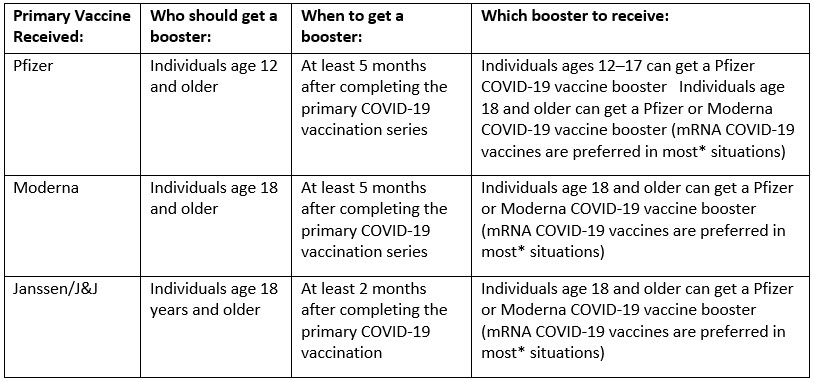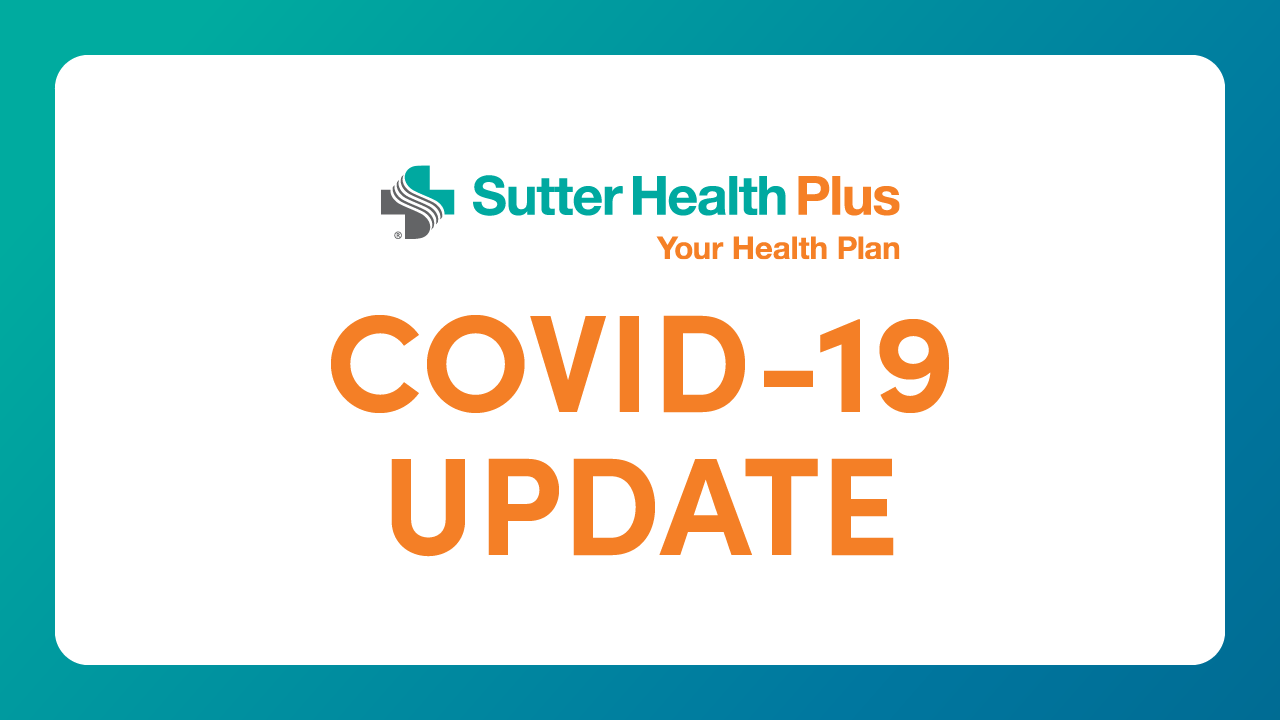The Centers for Disease Control and Prevention (CDC) expanded Pfizer COVID-19 vaccine recommendations to include moderately or severely immunocompromised children ages five to 11 receive an additional primary dose of vaccine 28 days after their second shot.
Additionally, the CDC updated the Pfizer booster shot recommendation to include individuals ages 12 to 15. The CDC also updated its recommendation for when many people can receive a booster shot, shortening the interval from six months to five months for people who received the Pfizer vaccine. This means that eligible individuals can now receive an mRNA (Pfizer or Moderna) booster shot five months after completing their Pfizer primary vaccine series.
This new guidance will help provide individuals stronger protection against COVID-19, which is especially important given the highly contagious Omicron variant.
Primary Vaccine Series, Additional Shots, and Booster Shots
In addition to the COVID-19 primary vaccine series, there are additional primary shots and booster shots. The terms “additional primary shot” and “booster shot” aren’t interchangeable. Please refer to the following to better understand the differences between the primary vaccine series, an additional primary shot, and a booster shot.
Primary Vaccine Series: Pfizer and Moderna require two doses: the initial vaccine and then a second shot—three weeks later for the Pfizer vaccine or four weeks later for the Moderna vaccine. The second dose stimulates a greater immune response, offering the recipient far more protection from COVID-19. The Janssen/J&J vaccine is administered as a single shot that provides maximum protection 14 days after administration.
Additional Primary Shot: Additional vaccine doses are administered to individuals with moderately to severely compromised immune systems at least 28 days after the initial vaccine series with the intent to improve their immune response.
Booster Shot: Booster shots are given to individuals at varying intervals after their initial series because their immune response to COVID-19 has likely decreased over time.
Booster Shot Guidance

*Although mRNA vaccines are preferred, J&J/Janssen COVID-19 vaccine may be considered in some situations. Updated as of Jan. 7, 2022.
COVID-19 Appointments
Sutter Health Plus covers COVID-19 vaccines for our members, including additional primary shots or booster shots, even when administered out-of-network. Vaccinations are offered at multiple locations across the Sutter Health Plus service area. Members can check appointment availability through:
- Network pharmacies
- The Sutter Health COVID-19 Vaccine appointment line at 844-987-6115
- Sutter’s patient portal, My Health Online
- My Turn, California’s COVID-19 vaccine scheduling portal
Proof of COVID-19 Vaccination and Test Results
Members who received their COVID-19 vaccination(s) or testing with Sutter can view and share proof of their COVID-19 vaccination(s) or test results easily from My Health Online. After signing in, members can click the Menu button, scroll to My Record and select COVID-19 to view details. Visit Sutter’s COVID-19 Vaccine Resources page for more information.
Additionally, all members can go to California’s Digital COVID-19 Vaccine Record site to get a link to a QR code and digital copy of their COVID-19 vaccination record.
Vaccination Progress
With the increasing vaccine eligibility and supply, the total number of eligible Californians (age five and older) fully vaccinated against COVID-19 now tops 71%, according to the state. Additionally, 51% of eligible Californians have already received a booster shot.
To maximize protection from COVID-19 and prevent possibly spreading COVID-19 to others, the CDC still recommends wearing a mask indoors in public settings—regardless of vaccination status.
Additional Resources
For up-to-date information about COVID-19, visit:
- Sutter Health Plus COVID-19 Coverage, Cost and Access to Care for health plan information and FAQs
- Sutter Health COVID-19 Resources for clinical information, a COVID-19 interactive screener, patient information, and more
- Centers for Disease Control and Prevention for federal guidance, U.S. data tracking, and public health information
- California Department of Public Health for California-specific alerts, data tracking, resources, and guidance


